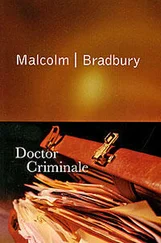Malcolm Bradbury - The History Man
Здесь есть возможность читать онлайн «Malcolm Bradbury - The History Man» весь текст электронной книги совершенно бесплатно (целиком полную версию без сокращений). В некоторых случаях можно слушать аудио, скачать через торрент в формате fb2 и присутствует краткое содержание. Жанр: Современная проза, на английском языке. Описание произведения, (предисловие) а так же отзывы посетителей доступны на портале библиотеки ЛибКат.
- Название:The History Man
- Автор:
- Жанр:
- Год:неизвестен
- ISBN:нет данных
- Рейтинг книги:3 / 5. Голосов: 1
-
Избранное:Добавить в избранное
- Отзывы:
-
Ваша оценка:
- 60
- 1
- 2
- 3
- 4
- 5
The History Man: краткое содержание, описание и аннотация
Предлагаем к чтению аннотацию, описание, краткое содержание или предисловие (зависит от того, что написал сам автор книги «The History Man»). Если вы не нашли необходимую информацию о книге — напишите в комментариях, мы постараемся отыскать её.
The History Man — читать онлайн бесплатно полную книгу (весь текст) целиком
Ниже представлен текст книги, разбитый по страницам. Система сохранения места последней прочитанной страницы, позволяет с удобством читать онлайн бесплатно книгу «The History Man», без необходимости каждый раз заново искать на чём Вы остановились. Поставьте закладку, и сможете в любой момент перейти на страницу, на которой закончили чтение.
Интервал:
Закладка:
'That's true,' says Howard. 'At the purely external level, you got screwed.'
In fact what happened, at the purely external level, was that one afternoon a friend that the Kirks had made, a psychology student named Hamid, an Egyptian with big dark eyes and an obsessive devotion to Jung and Lawrence Durrell, had called at the flat, wanting to interest them in going to a jazz concert that evening. It was late in the afternoon, but Howard, who was-not by pure chance, says modern Howard-forgetful of the time, was still working away in the university library, busily reading other people's theses, and making notes on them, in order to write his own. Hamid had brought with him to the flat some photographs of Abu Simbel, and a box of Turkish Delight, and so somehow Barbara went to bed with him, in the high bed with the wooden head and foot, in the room overlooking the rotting garden. She had squeaked with a certain pleasure, though it was not anything more than a hasty fumble under the covers, by no means an exceptional moment for either party. But it left Barbara with a residue of severe guilt; it was, says Howard now, typical that her response to this was to drive it down and deny it, in the hope of suppressing the entire episode. However, Hamid had his own obscure moral imperatives to pursue; he insisted on staying for supper, and his purpose was, as it emerged, to tell Howard all about the moment on the high bed that afternoon, when, as he explained, Barbara and he had made some love. 'I think,' says Howard now, 'the purpose he had in mind, natural enough from his cultural standpoint, was to establish intimacy between the male parties. We have to recognize his culturally determined view of women.'
'My God,' says Barbara, 'he just liked me.'
'That's compatible,' says Howard. So Hamid, with his dark eyes, made his confession, comfortably awaiting Howard's response, while Howard sat, his jaws working on the supper, in a state of profound shock. 'My first thought was violence,' he says, 'not against Hamid, of course, against Barbara. I felt penetrated myself. The ethic of total possession of the woman you're married to runs very deep. Or did.' But he was calm, for he was intelligent, and in any case he had been taught, overtaught, to control and exclude aggression.
And he did know a little Marx, a little Freud, and a little social history; he knew how quantitative change suddenly becomes qualitative change, and how reification occurs, and how sex is not simply genital interaction but an ultimate discharge of the libido, a psychic manifestation. He had known it all the time; now he realized it. For some time he had been feeling obscurely touched by and dispossessed by the way in which, in the onward transactions of the historical process, some new human rhythm, a new mode of consciousness, seemed to be emerging. He had felt it in the young people (at that time the young people were, to the Kirks, other people: they were the twenty-five-year-old old people) and in the revolts and the expressions of the American blacks, and in the Third World, the world Hamid came from. Now he felt stranded in historical foolishness, but he had a little sense of hope for himself. He sat over the sausages, and he listened to Hamid, who spoke in fatalistic terms ('It is what happens, Howard, because these things are willed to happen') and then to Barbara, who defended herself with a sudden new aggression ('I'm a person, Howard. I've been a person here all this time, stuck in this room, and he saw it, and you never have'). He poked a sausage; he recognized historical inevitability. The small revolution had come. 'I looked across the table at this person I had been calling a wife for the last few years, and her face suddenly switched on and turned real for me,' Howard says. 'Mine did?' asks Barbara. 'Mine?'
'That's right,' says Howard. 'And when one face becomes real, all faces become real.'
'Right,' says Barbara, 'especially the pretty ones.'
Barbara's tiny affair in the high bed had a powerful effect; it excited the Kirks with each other. And so they found themselves taken, for a time, with a hazy dream in front of them, a dream they talked out and out; it was a dream of expanded minds, equal dealings, high erotic satisfactions, a transcendence of what they had up to now taken to be reality. They now started transcending reality quite frequently, making love in parks, smoking pot at parties, going up on the moors past Adel and running with their clothes off through the wind, buying stereo equipment, taking trips to London, rubbing margarine on each other in bed, going on demos. It was just after this affair of Barbara's that Howard's father died ('One inevitably recognizes the removal of the psychic focus of paternalist constraint,' says Howard, 'of course, I cared for him a lot'), and only a few days later Howard was asked to apply for a temporary assistant lectureship, right there at Leeds, in the department where he had been doing his research; a post he very quickly got. There were a few finishing touches to be given to the thesis, but he could set that more or less aside for a while; now the task was to prepare for teaching, get further into the ranges and depths of sociology. On the strength of the appointment, the Kirks got a bigger flat, with a smaller bed, and were able to install a new cooker, hire a television set, and have a few small parties. They made some new, and much more radical, friends, among other postgraduate students, and now as well among the faculty. The fact that he was no longer a man who was marked but a man who would mark pulled him out of the mental waste land of subservient achievement in which he had lived. The Kirks spent the summer in a state of continuous excitement; it was the most exciting summer of their lives.
Indeed things over those summer months began to get a little dangerous with them. They got up each morning feeling physically sated, excited with their own bodies and the other body that had excited them with their own. They talked a lot to each other about swinging, feeling good, getting high. They looked at each other and observed limitations, the obstructiveness of the other self, which was always so very there, always so very insistent, to the onward path they each had chosen; they each accused the other, from time to time, of closing the doors, killing the options, holding back, getting out. They quarrelled quite often; but these were no longer the mean little quarrels that their mean little selves, the selves of the old dispensation, before their consciousness revolution, had indulged in before, quarrels so low-keyed as to be almost invisible, while remaining deeply felt and unresolved. 'It was a politics of growth,' says Howard, 'an elaborate dialectic of self-statement. It was exactly what was needed.'
'But, How, you've got to remember,' says Barbara, 'there was still a deep bourgeois element.'
'Oh, right, there was indeed,' says Howard, 'it was inevitable.'
'And I remained in his eyes essentially property, still,' says Barbara. 'Of course it's an inevitable contradiction structured into the institution of marriage,' says Howard, 'and we came from the generation that focused on marriage.'
'Of course,' says Barbara, 'we're still in fact married.'
'But on our own terms,' adds Howard, 'we've redefined it internally.'
'I'll say,' says Barbara.
When the new academic year came around in the autumn, and Howard began teaching for the very first time, he found that the events of the summer had given him the gift for bringing a passionate fervour into the subject, making him want to teach it as it had never been taught before. He took his classes to the law courts, and lectured them in the corridors, until the noise became so great that he was asked to leave. He went with them and they all spent the night in a Salvation Army hostel, to know at first hand. He got into demography and social psychology, and took a Wright Mills reformist approach to the field. He found himself deeper into the academic sub-culture, the lifestyle of his fellow-lecturers and especially of his fellow-sociologists. He talked very seriously and solemnly about theoretical matters. He took to wearing the black leather jackets that most of his colleagues, for some reason, affected. There were many new beards in 1963; Howard's was one of them. Later he started selling Red Mole in the city centre on Saturdays, holding a copy high in his clenched fist in front of the faces of the market shoppers. Barbara no longer sat in the flat. She came to the university, went to lectures, attended political meetings, visited filmshows, and stapled provocative posters on boards when nobody was looking. She got into health foods and astrology, studying vitamin levels and cholesterol counts, and doing horoscopes of political opponents. She went to all the faculty parties, and became very outgoing and popular, standing in corners in lowcut dresses raising tendentious issues, and drinking a great deal. Altogether the Kirks became well known as a feature of the younger faculty, and one of the lively centres of the culture they had going.
Читать дальшеИнтервал:
Закладка:
Похожие книги на «The History Man»
Представляем Вашему вниманию похожие книги на «The History Man» списком для выбора. Мы отобрали схожую по названию и смыслу литературу в надежде предоставить читателям больше вариантов отыскать новые, интересные, ещё непрочитанные произведения.
Обсуждение, отзывы о книге «The History Man» и просто собственные мнения читателей. Оставьте ваши комментарии, напишите, что Вы думаете о произведении, его смысле или главных героях. Укажите что конкретно понравилось, а что нет, и почему Вы так считаете.











